A real-world range test has shown what distance a driver should expect to cover from a fully-charged battery on some of the latest electric vehicles (EVs).
The most efficient new car in the test, conducted by What Car?, was the Tesla Model 3 RWD, which averaged 4.4 miles per kWh.
The least efficient, the Audi Q6 e-tron Launch Edition, managed only 3 miles per kWh.
As a result, if you charged exclusively at home and paid 22.4p per kWh (the current electricity price cap), you’d spend roughly £508 on electricity every 10,000 miles in the Model 3, versus £745 in the Q6 e-tron.
Alternatively, if you did all your charging at a typical public rapid charger, where you could expect to pay 79p per kWh, those bills would rise to £1,795 for the Model 3 and £2,633 for the Q6 e-tron.
This means you could potentially be spending an extra £838 by choosing one EV over another.
“Only a few years ago, when electricity was cheap and any electric car cost far less to run than an equivalent petrol or diesel model, efficiency didn’t seem to matter that much,” said Steve Huntingford, editor of What Car?
“However, with energy prices high and due to rise further, it’s now an important consideration.”
The test also highlighted how battery technology is improving, with the recently revised Polestar 2 Long Range Single Motor not only going farther than any other electric car on the day, but farther than any electric car What Car? has previously range-tested.
The Polestar 2 managed a total of 333 miles – enough to drive from London to Nottingham and back without stopping to charge.
In addition to 11 new electric cars, a nine-year-old Tesla Model S, with 258,000 miles on the clock, was also put through its paces to see if concerns around battery longevity are justified.
Despite it still being on its original battery and effectively having been to the moon, the test showed the Model S had lost just 8% of its original capacity.
Geotab recently analysed the battery health of almost 5,000 fleet and private EVs, representing nearly 1.5 million days of telematics data, to explore how the latest battery technology holds up to the rigours of daily use.
The data highlighted how batteries degrade, on average, by 1.8% per year – compared to 2.3% when Geotab last performed a wholesale analysis of EV battery health in 2019.
For its test, What Car? used the Horiba-MIRA proving ground in Warwickshire, where it could run EVs out of charge in a safe environment.
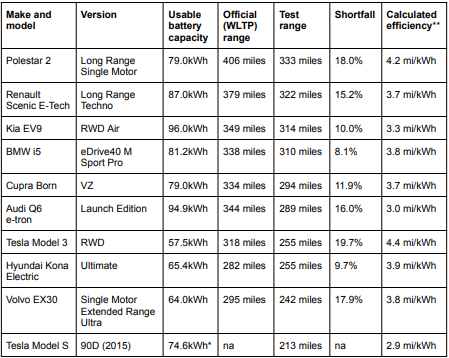

In each case, the climate control system was set to 21deg and Eco (or the closest equivalent) driving mode was selected.
Then, the cars were repeatedly driven around a 19.2-mile test route, which included 2.7 miles of simulated stop-start urban driving, 5.5 miles at a steady 50mph and 11 miles at a constant 70mph.
The rationale for the high percentage of high-speed cruising is that drivers who want to travel long distances in one hit are likely to be using the motorway network.
Driver changes and a switch in running order were carried out at the end of each loop. And the temperature during testing ranged from 17-23deg C.
Last year, Fleet News conducted its own range test of some the best-selling EVs – read the results here.

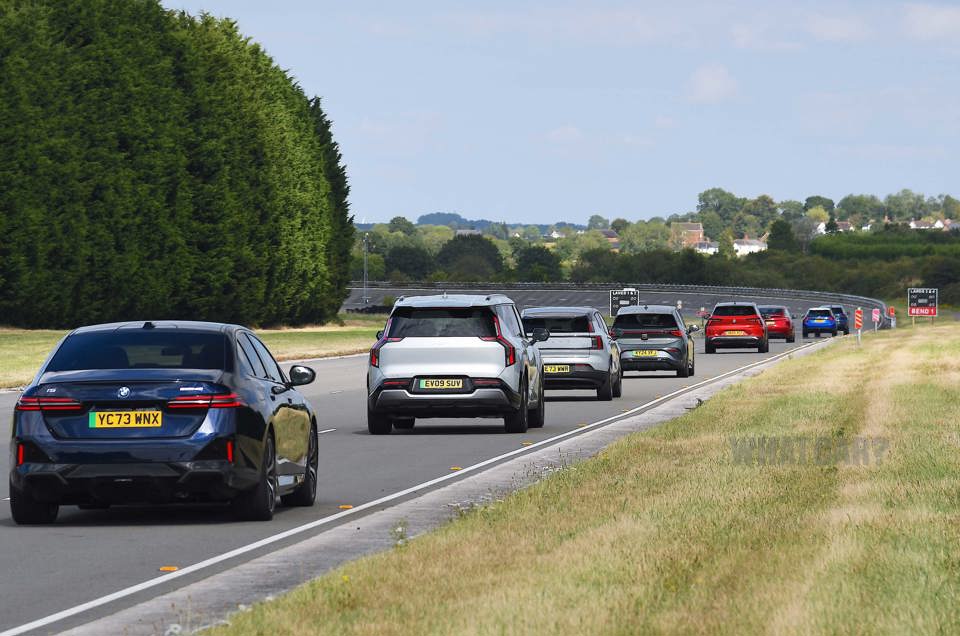





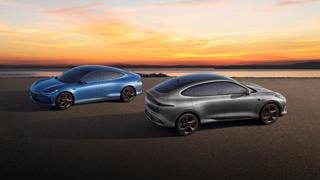

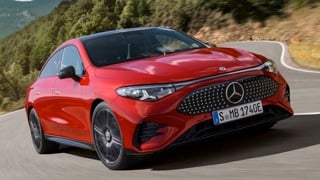
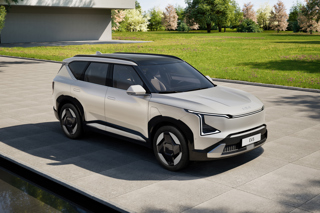












martinwinlow - 23/09/2024 13:13
What this article fails to mention (rather depressingly, IMO) is that if you pick the right tariff (and have a smart meter) you can cut the cost of your EV's 'fuel' down to a third of the price mentioned (~7p/kWh). Nor did it mention that if you have PV (and, ideally, a battery) you can charge it for free!! Try doing *that* with petrol or diesel! Quite why EV makers don't just give an energy consumption figure at 30, 50 and 70 mph (at 20C, no weather, level road) I just don't know. It doesn't matter what your use-scenario is or what the weather is actually like when you drive, this scheme would just give an easy to understand comparison between all vehicles across the board. The reason this doesn't happen of course is because car-makers want to confuse their customers into believing their car is better than anyone else's and government is too corrupt or stupid to intervene! Same goes for food labelling. The country is in the grip of an obesity crisis and the one thing that *actually* makes you fat when eaten indiscriminately - carbs - is completely missing from the 'traffic light' system of food nutrition labelling!